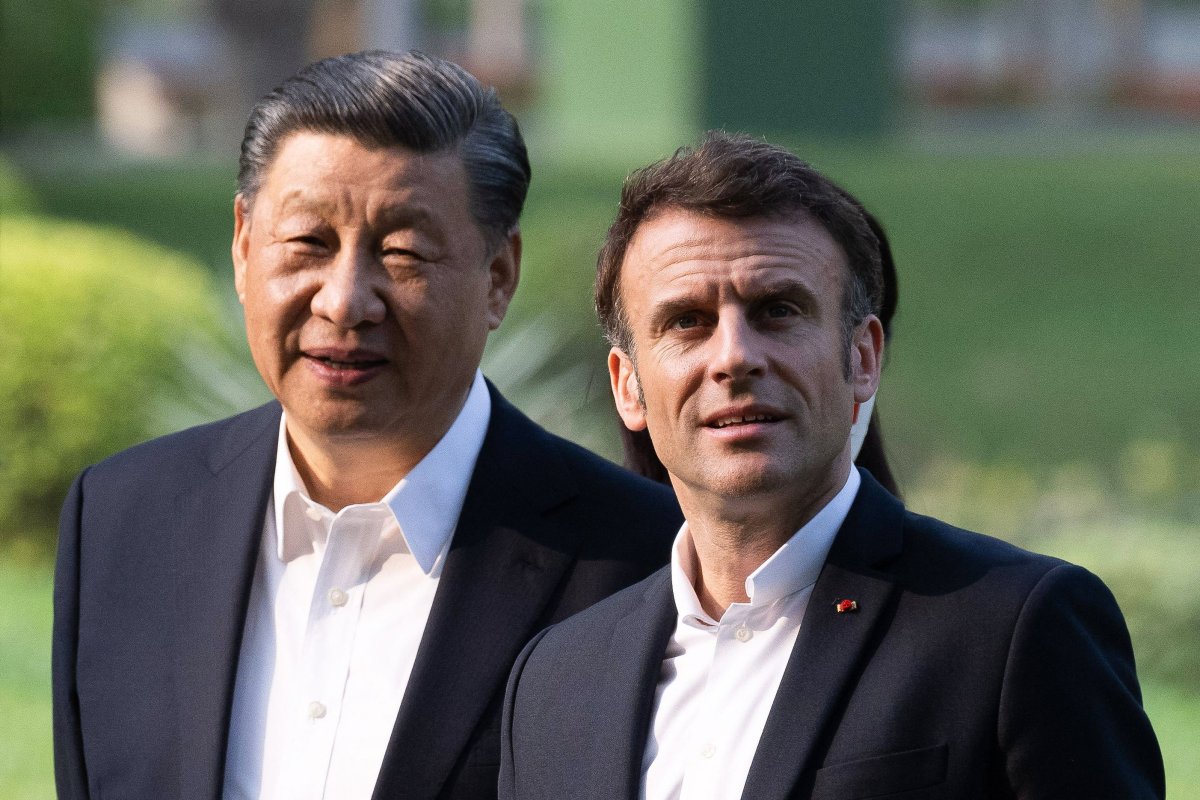French President Emmanuel Macron is in hot water, again. His comment that Europe "must not get caught up in crises that are not ours" in reference to Taiwan has caused outrage on both sides of the Atlantic. In the United States, politicians are questioning why the U.S. should continue to subsidise European security when its leaders undermine U.S. interests in the Indo-Pacific. The only place the interview was welcomed was in Beijing, with praise from Chinese Communist Party leaders and a gushing op-ed in the Party's mouthpiece The Global Times.
When it comes to Taiwan, Macron does not speak for Europe. In recent days, leaders from Poland, Czech Republic, and Lithuania, have all reaffirmed their strong support for Taipei. Even in Germany, which has the largest trading relationship with China of any EU member state, Chancellor Olaf Scholz is clear that Beijing would face consequences if it attempted to change the status quo in Taiwan by force. This was a message Foreign Minister Annalena Baerbock reiterated in Beijing on Friday.
Macron's views are increasingly out of step with European thinking. What happens in Taiwan matters deeply to Europe.
Taiwan has developed into one of the world's most advanced economies and become a vibrant pluralistic democracy. It has become a beacon of liberty in the region, in sharp contrast to an increasingly aggressive and autocratic China. Twenty-four million Taiwanese citizens are clear they want to decide their own future, free of pressure from Beijing. Europe and the entire democratic world must support that ambition.

Military escalation in the Taiwan strait, or Chinese domination of the island, would also be a serious threat to Europe's economic interests. More than 60 percent of global maritime trade passes through the South China Sea. The outbreak of a significant conflict there would send shockwaves around the world. The economic impact would be magnitudes higher than the war in Ukraine or the COVID-19 pandemic. Taiwan also produces over 60 percent of the world's semiconductors and about 90 percent of the most advanced ones. If Beijing controlled this manufacturing, that would give it a major chokehold on the global economy and would place European governments and firms in a position of weakness.
On Taiwan, Europe shares the same interests as the United States. As China steps up military provocations, the democratic world needs to be clear that any attempt to change the status quo would come at an immense cost to Beijing. China relies on exports to global markets to fuel its growth. So, spelling out the economic consequences of an attack in advance can act as a powerful deterrent.
Macron could have used his visit to reinforce this message, instead he called for greater European autonomy from the United States on foreign policy. The timing of the comments was deeply concerning. With democratic values and the rules based international order increasingly under threat, the democratic world needs to draw closer together, not pull itself apart. The war in Ukraine has shown that when we are united, the free world remains a formidable force. In face of an increasingly aggressive China, we need a similarly unified approach.
This does not mean Europe should not be more autonomous in some areas. On defense, Europe must take greater responsibility for its own security. Since Russia's invasion, the U.S. has provided $47 billion of military aid to the Ukrainian armed forces compared to just $21 billion from all EU member states combined. Meanwhile, only six of NATO's European allies meet the agreed target of spending 2 percent of GDP on defense. Greater European autonomy would not be a way to loosen the transatlantic alliance, it would bolster it. If European countries can play a bigger role in guaranteeing security on their own continent, the U.S. can focus more resources on the Indo-Pacific.
If Europe wants to be a global power, it must recognize that comes with responsibility. Strategic autonomy cannot mean strategic isolation. Ensuring our values and interests are protected around the world means working closely with like-minded partners, not pretending there is a middle way between the democratic United States and an authoritarian China.
Nowhere is that clearer than on Taiwan. What happens there will shape the geopolitics of the next century. If we want it to be based on freedom, then we must show resolute support for Taipei's democracy and speak clearly to Beijing. If we fail to do so, the world's dictators will gain ground.
As Macron headed back to Paris, Chinese warships gathered in the waters surrounding Taiwan. Fighter jets overhead simulated attack runs on the island. In this heated environment there is a real danger of escalation or miscalculation. Sending mixed signals heightens these risks. So even if Macron does not speak for Europe, his words still matter.
Anders Fogh Rasmussen is the former NATO secretary general and prime minister of Denmark.
The views expressed in this article are the writer's own.
Uncommon Knowledge
Newsweek is committed to challenging conventional wisdom and finding connections in the search for common ground.
Newsweek is committed to challenging conventional wisdom and finding connections in the search for common ground.
About the writer
To read how Newsweek uses AI as a newsroom tool, Click here.








